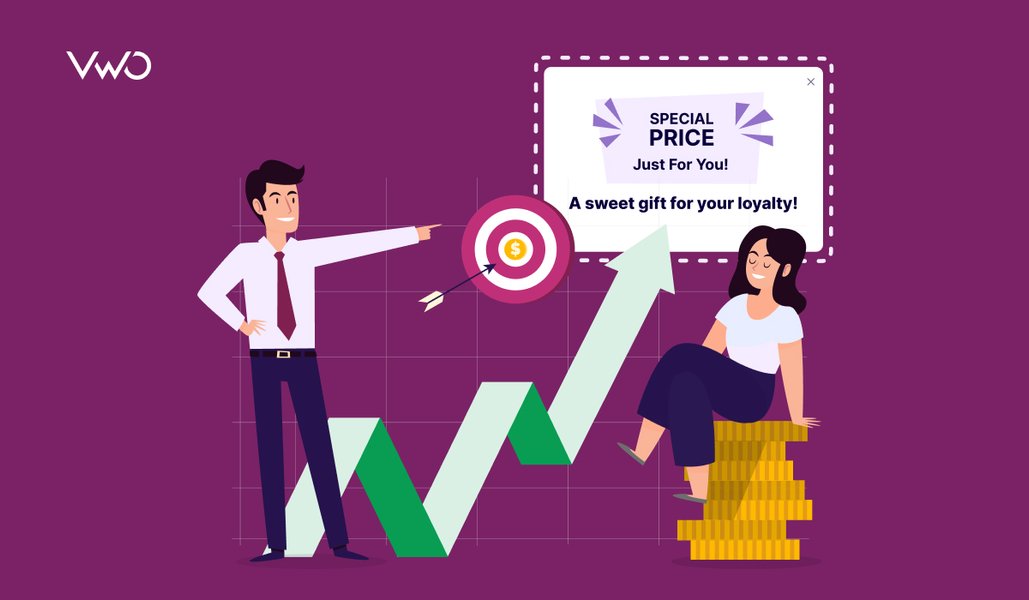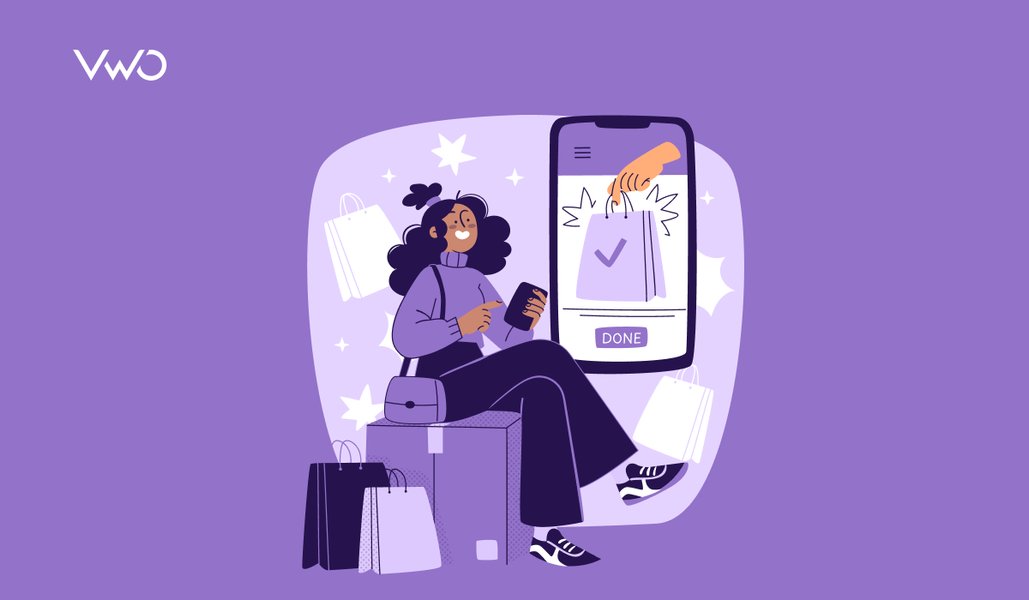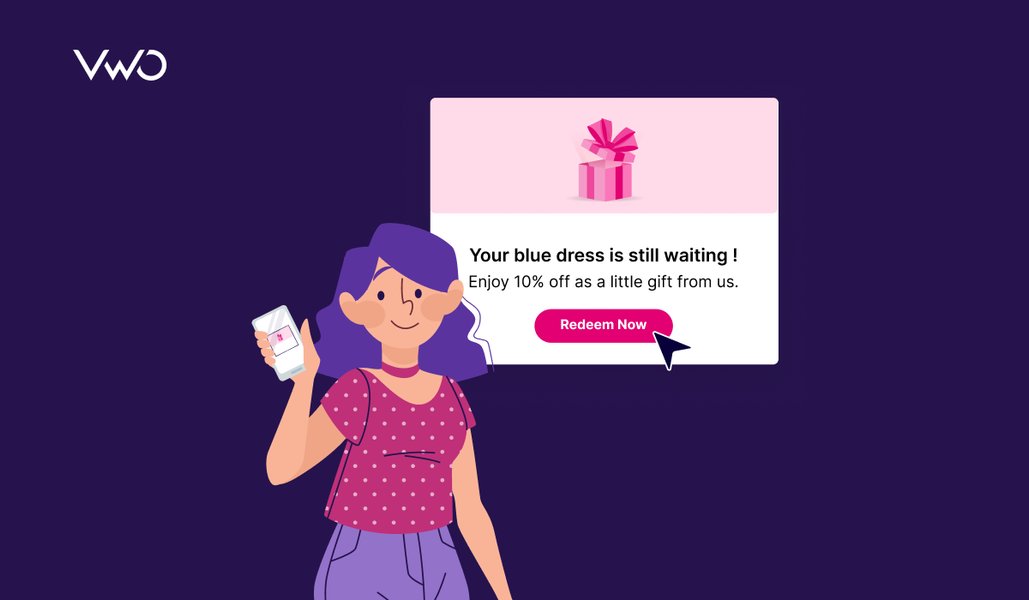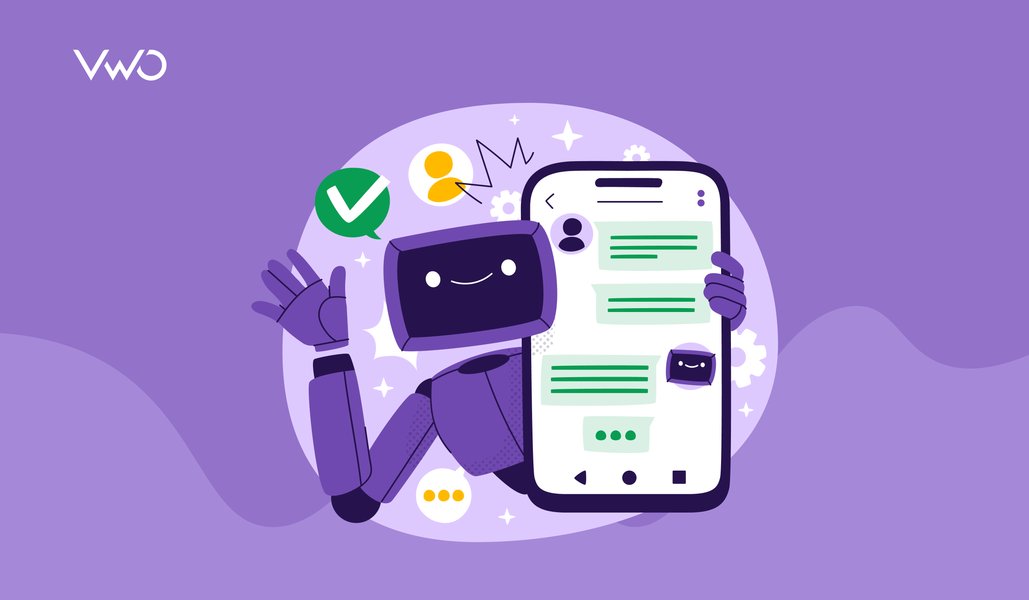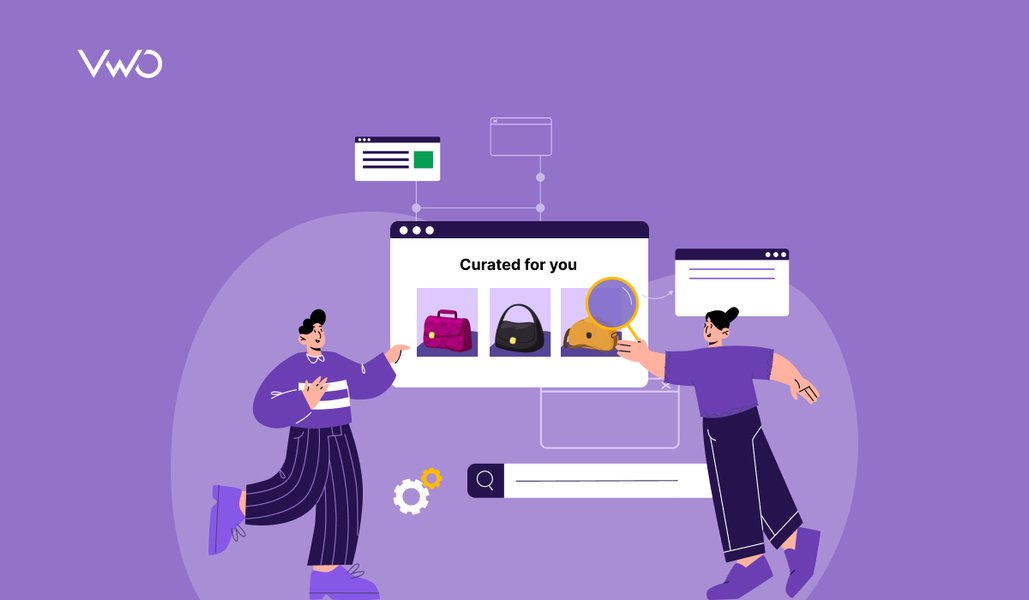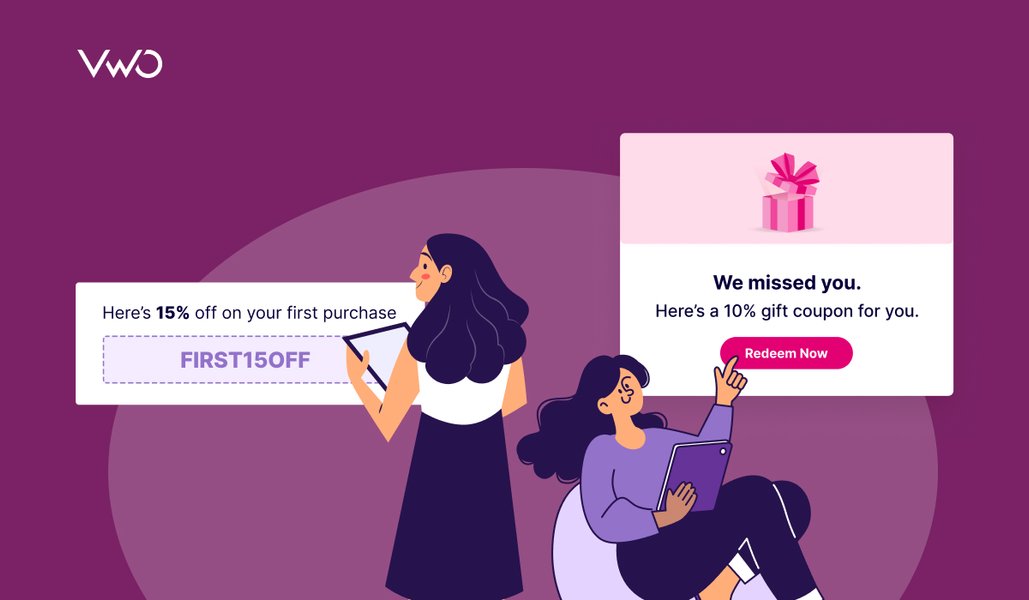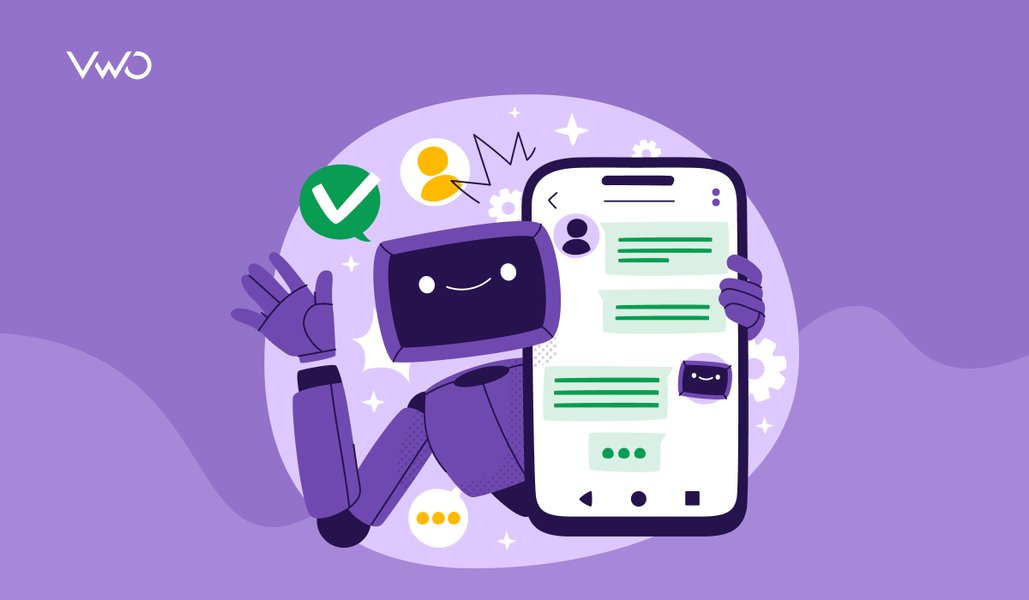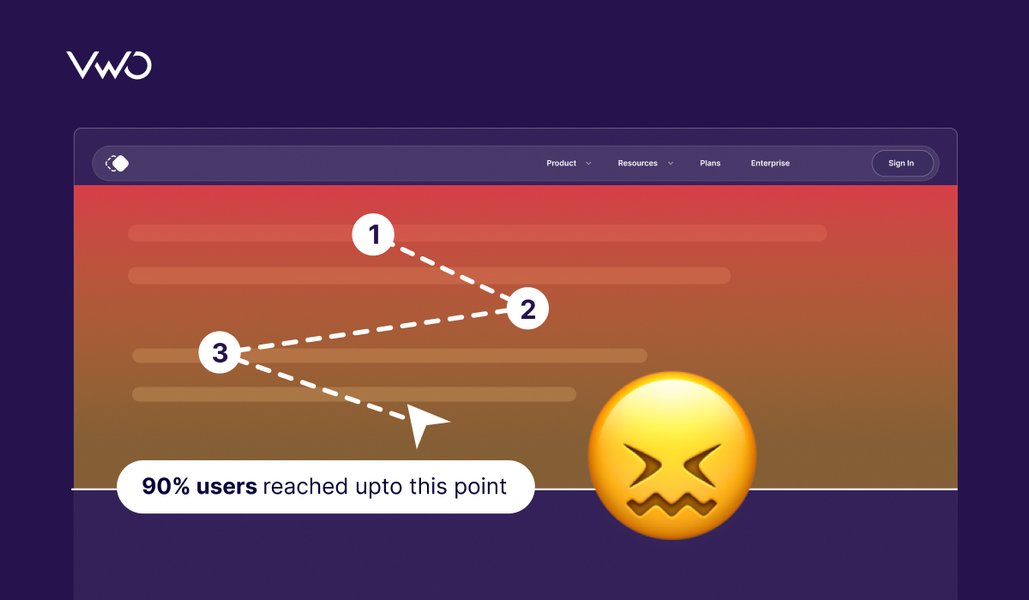Website personalization has moved from a competitive advantage to a necessity for businesses aiming to stay ahead. Tailoring content, product recommendations, and special offers to individual preferences allows brands to create a more personalized customer experience and meaningful connections and influence customer behavior in a way that directly boosts conversions and long-term success with repeat customers.
But how impactful is the personalization strategy on business outcomes? The following statistics highlight how powerful personalized experiences on your website can drive actual, measurable results.
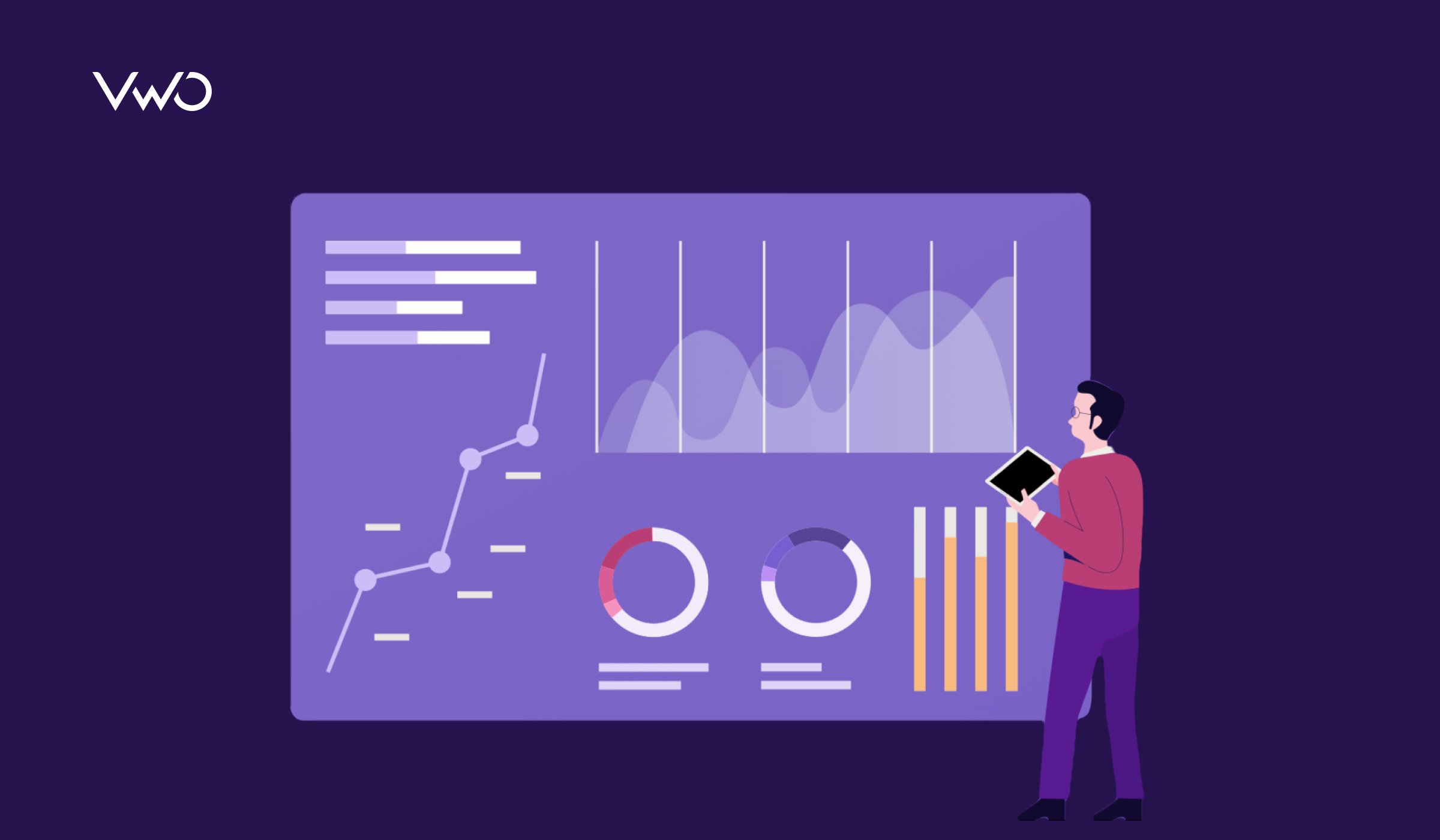
General website personalization stats
Consumers gravitate towards brands that recognize and cater to their unique preferences and needs as they navigate countless online options. Personalization enhances user experience and fosters more robust engagement and higher conversion rates. This section will delve into compelling statistics highlighting the importance and impact of website personalization.
1. Customers feel frustrated when websites fail to deliver personalized content, with 74% expressing this sentiment.
(Source: Instapage)
2. A responsible and beneficial use of personal information encourages 57% of website users to share their data.
(Source: invesp)
3. Personalization is expected to make navigation easier for 75% of consumers, both in-store and online.
(Source: Sender)

4. In-house marketers personalizing their web experiences see an average 19% uplift in sales.
(Source: Instapage)
5. Website personalization increased conversion rates for 94% of companies.
(Source: Fresh Relevance)
6. Personalization is seen as a profit booster by 90% of top marketing professionals in the industry.
(Source: Fresh Relevance)
7. Positive ROI is reported by 59% of marketers after incorporating personalization into their online stores.
(Source: invesp)
8. Implementing basic website personalization can lead to a 14% increase in sales.
(Source: Fresh Relevance)
9. Almost 74% of eCommerce companies have implemented a website personalization program.
(Source: Yieldify)
Product recommendations statistics
Personalized product recommendations enhance the shopping experience by delivering tailored suggestions that increase engagement and drive conversions.
10. Nearly 45% of online shoppers are more likely to make purchases on a site that provides personalized recommendations
(Source: invesp)
11. Personalized product recommendations can increase website conversion rates by 49%.
(Source: Fresh Relevance)
12. Personalized product recommendations increase average order value by 10%.
(Source: Fresh Relevance)
13. Customized product suggestions can enhance click-through rates by more than 100% compared to generic recommendations.
(Source: Fresh Relevance)
14. Personalized product recommendations on a website can increase sales by 112%.
(Source: Fresh Relevance)
15. Product recommendations are offered by 71% of eCommerce websites.
(Source: Fresh Relevance)
Bear Mattress partnered with VWO to enhance product recommendations through A/B testing. By redesigning the cross-sell section with images, they achieved a 16% revenue increase and a 24% boost in purchases, significantly improving product engagement.
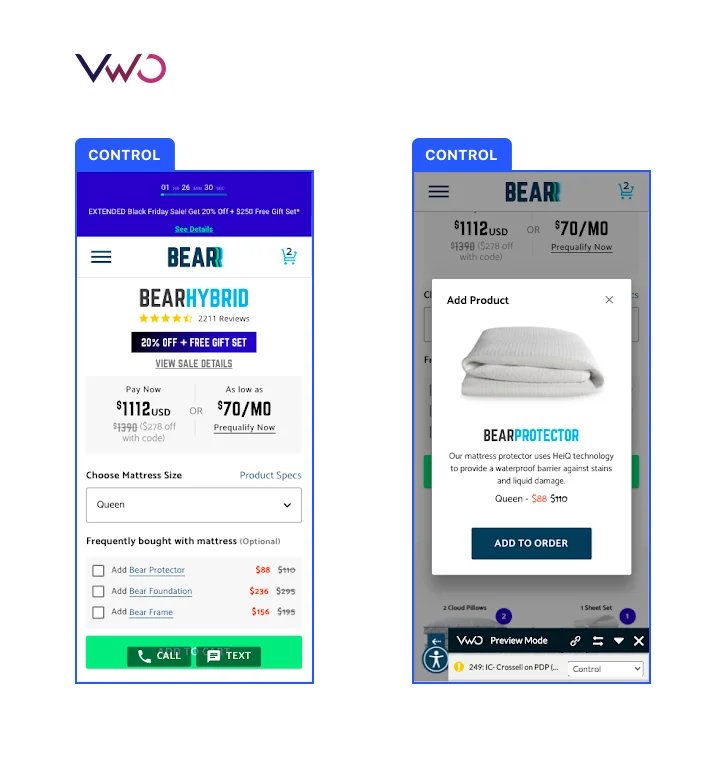
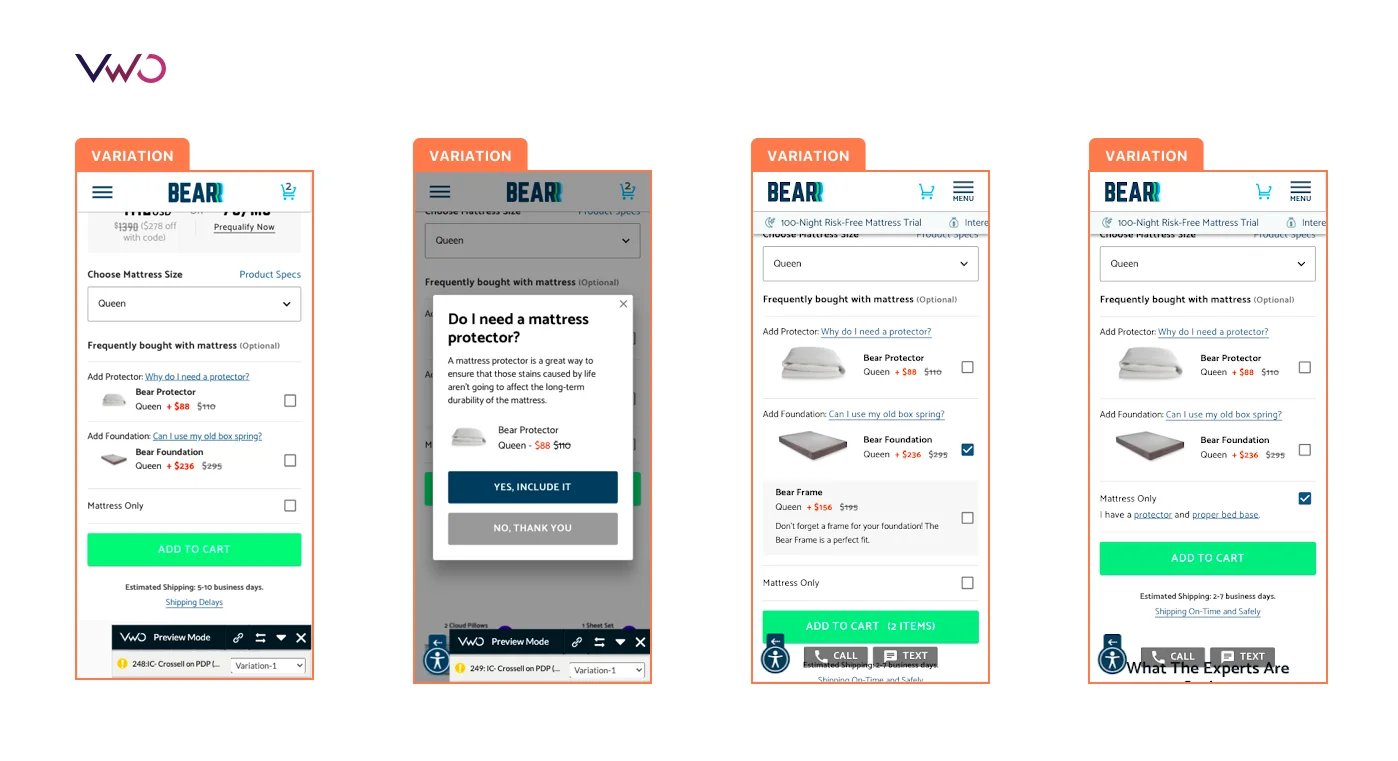
Website pop-up personalization statistics
Personalized pop-ups tailored to user behavior, such as browsing or exit intent, boost engagement and conversions by offering relevant, timely incentives. Discounts or countdown timers create urgency, driving faster decision-making and reducing cart abandonment, while A/B testing optimizes their impact for better results.
16. Pop-ups with customized discounts show a conversion rate of 8.53% higher than those without.
(Source: wisernotify)
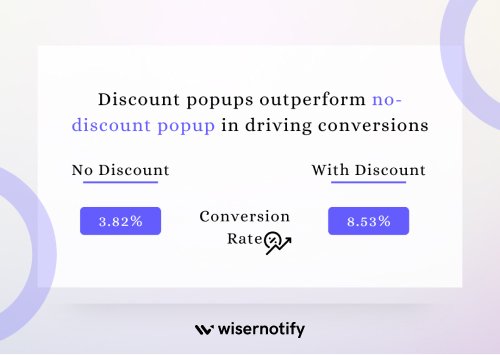
17. Adding a countdown timer or limited-time offer to a website increases conversions by 41%.
(Source: wisernotify)
18. The typical conversion rate for pop-ups stands at 4.01%.
(Source: wisepops)
19. Exit-intent pop-ups significantly impact visitor retention, potentially preventing up to 15% of visitors from leaving and recovering 13.5% of lost sales by offering checkout incentives.
(Source: picreel)
Use VWO Personalize to dynamically adjust pop-ups, product recommendations, personalized messaging, and pricing to match individual user preferences, enhancing personalization and driving higher conversions.
Website coupon personalization statistics
Personalized website coupons boost conversions and improve brand perception by tailoring offers to user behavior and creating time-sensitive deals for loyal customers. Optimize performance with A/B testing, mobile-friendly redemption, and marketing automation.
20. 59% of shoppers actively seek personalized discounts or discount codes before purchasing.
(Source: invesp)
21. Discounts coupons showing “percentage off” savings are preferred by 74% of online shoppers.
(Source: Fresh Relevance)
A prime example of the power of website coupons is Domino’s Pizza, which offers online coupon codes for discounts, free delivery, or bundled deals. These coupons have become a significant driver of their online sales, particularly during high-traffic times like game days or holidays.
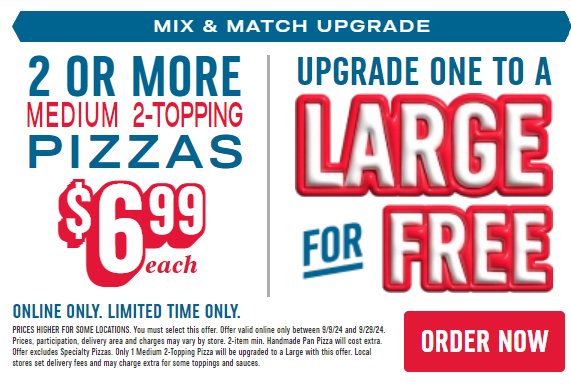
eCommerce website personalization stats
eCommerce personalization provides an improved and personalized customer experience and can boost conversion rates.
Implement personalization by:
- Tailoring product recommendations
- Customizing homepage content
- Personalizing search results
- Using targeted promotions for different customer groups
- Creating personalized loyalty programs
Manage and optimize personalization:
- Collect and analyze user data to inform strategies
- Use A/B testing to refine personalized elements
- Consider AI-powered platforms for automated customization
- Use customer data platforms to centralize customer information
- Implement recommendation engines to boost cross-selling
- Utilize customized email marketing campaigns
- Adopt a dynamic content management system for real-time personalization
- Conduct regular testing and optimization to improve efforts continually
22. Consumers are more likely to shop with brands that remember their preferences, with 91% favoring relevant, personalized offers and recommendations.
(Source: Optimonk)
23. Personalization shows strong returns, with 4 out of 5 retailers seeing positive ROI.
(Source: wisernotify)
24. Personalization is critical for 45% of consumers when shopping on an eCommerce site.
(Source: mailmodo)
25. Consistent experiences across sites are essential to 90% of shoppers.
(Source: wisernotify)
26. After adopting personalization strategies, 65% of ecommerce stores report increased conversion rates.
(Source: mailmodo)
27. Personalization strategies on e-commerce platforms can lead to a 20% boost in sales.
(Source: wisernotify)
28. AI-powered personalization drives retention, as 78% of customers are more likely to repurchase from brands that understand their preferences.
(Source: cmswire)
29. The use of AI and machine learning in recommendation engines is set to grow, with the market projected to hit $12 billion by 2025.
(Source: qualtrics)
Amazon personalizes its eCommerce customer experience by customizing product recommendations and homepages based on user behavior. This tailored approach, which includes features like “Inspired by your shopping trends,” aims to improve user engagement and increase sales.

Site search personalization stats
Personalizing site search results can significantly enhance the user experience and boost conversion rates by delivering personally relevant content-tailored results that meet individual user needs. Let’s explore why personalized site search is so impactful.
30. Conversion rates can improve by up to 50% when search results are personalized.
(Source: wisernotify)
31. When search results are irrelevant, 1 in 3 (33%) consumers report feeling frustrated with the experience.
(Source: Fresh Relevance)
32. Almost 68% of customers are unwilling to return to sites that provide a poor search experience.
(Source: mailmodo)
33. Personalization affects 11.7% of search results, though this impact can vary significantly.
(Source: wisernotify)
Best Choice Products optimized their mobile site by making the search bar more prominent, using insights from heatmaps, session recordings, and A/B testing. This led to a 30% increase in conversions and a slight boost in revenue.
Location-based website personalization statistics
Location-based personalization customizes content, products, and services based on users’ locations. It enhances user experience, improves local SEO, and boosts conversions by adjusting language, currency, and regional offerings using IP detection or location preferences.
34. Location-based information makes smartphone users more likely to purchase, with 67% showing a preference.
(Source: Fresh Relevance)
35. Nearly 42% of shoppers prefer online retailers to display item availability in their nearest store.
(Source: Fresh Relevance)
Website personalization – The need, benefits, and strategies
Users now expect more than a generic browsing experience. Website personalization customizes each user’s journey by adapting content, product recommendations, and offers based on customer knowledge, purchase history, individual behavior, preferences, and demographics.
This dynamic approach to implementing personalization makes interactions more relevant and engaging, allowing businesses to create deeper connections with visitors. Effective personalization tactics are essential for capturing attention and fostering long-lasting engagement in a crowded digital landscape.
The benefits of website personalization are substantial. It:
- Increases customer satisfaction by delivering a more intuitive and enjoyable experience.
- Boosts conversion rates through targeted product recommendations and offers.
- Improves customer retention by fostering loyalty
- Helps businesses optimize their marketing efforts, leading to higher ROI and long-term profitability.
Website personalization can be achieved through several key strategies and tools that personalize content and experiences for individual users. Here’s how it can be done:
- Leverage user data: Use insights from user behavior, purchase history, and location to craft personalized experiences. This data can be instrumental in recommending relevant products, adjusting content, or delivering tailored promotions. Start using VWO Insights to explore how visitors navigate your site, ensuring your personalization strategy is informed by real user interactions.
- Customer segmentation: Group users based on behaviors, demographics, or purchasing habits to deliver more relevant content and offers. VWO’s custom segmentation feature helps you categorize visitors, allowing for tailored product recommendations and promotions that boost engagement and maximize ROI. This ensures each user interacts with content suited to their individual needs.
- Dynamic content personalization: Customize website elements such as banners, calls to action, and product recommendations according to specific user segments. This allows visitors to experience content that resonates with their behavior and preferences. With VWO Personalize, you can dynamically adjust pop-ups, product suggestions, and CTAs based on real-time user activity, leading to increased engagement and improved conversion rates.
- Behavioral targeting: Use behavioral tracking tools to monitor users’ interactions with the site and adjust the experience accordingly. For example, offer targeted pop-ups or product recommendations based on users’ views or clicks.
- Personalized email campaigns: Integrate website personalization with email marketing by sending personalized messages based on user behavior, such as abandoned cart emails or tailored product recommendations.
- Use A/B testing: Regularly test personalized elements of your site with tools like VWO to determine which variations perform best with different user segments, ensuring constant optimization.
- Geo-targeting and localization: Personalize content based on the user’s geographic location, such as displaying local products, currencies, languages, and regional offers.
- Implement AI and machine learning: Use AI-powered tools to analyze user behavior in real-time and deliver personalized recommendations, content, and search results. Machine learning can help predict what users seek, enhancing engagement and conversions.
Wrapping up
The power of website personalization is undeniable. Customized experiences improve customer engagement and lead to higher conversions and revenue. Adopting a personalization strategy is crucial for businesses to thrive and maintain a competitive edge in a digital world where consumers expect personalization and tailored interactions.
Want to elevate your website’s personalization efforts? Try VWO’s robust platform to optimize and personalize your site, driving better user experiences and tangible business outcomes. Take the free trial today!



